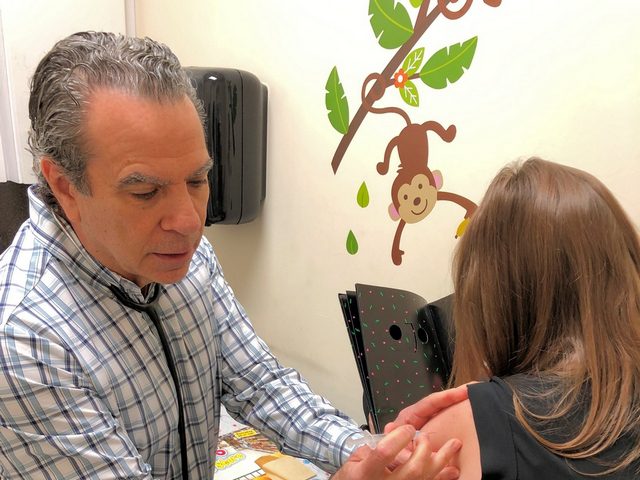
According to the Center for Disease Control and Prevention (CDC), there have been 940 individual cases of measles (Rubeola) confirmed in 26 states, Florida being one of them.
This is the greatest number of cases reported in the U.S. since 1994. Further research shows that most of the people who caught it, were unvaccinated. The highly contagious respiratory virus has still been very common in other parts of the world; it’s believed that travelers brought measles back from other countries such as Israel, Ukraine and the Philippines.
Those travelers who were infected came in contact with people in the United States who were unvaccinated. As a result, the disease started to once again spread in the U.S.
Banyan Health Systems intends to do its part to stop the spread of this very deadly disease by providing the vaccine, regardless of health insurance or people’s ability to pay.
Dr. Manuel Vega, pediatrician at Banyan Health Systems, said that parents should be up to date regarding their children’s immunization. “Being anti-vaccine has become as popular as wanting to become vegan or gluten free, and frankly, that’s irresponsible,” Dr. Vega said.
He advises that children should not be going to school without first receiving measles, mumps and rubella immunizations (MMR), because that’s how this outbreak can turn into an epidemic.
A child with the measles may develop encephalitis, or the swelling of the brain. This can lead to convulsions, deafness or intellectual disability, and sometimes death. For that reason, some adults who were previously vaccinated in the 1970s may have to come in for another shot. The CDC states that there is no harm in getting another dose of MMR vaccine if you may already be immune to measles (or mumps or rubella).
“If an adult or senior citizen is concerned, they should come into our primary care clinic for some bloodwork,” Dr. Vega said. “We would have them undergo an IgG or immunoglobulin test to measure the level of certain immunoglobulins, or antibodies, in the blood. A Titer test will be drawn for Measles to check for the presence of certain antibodies in the blood stream.”
Both the test and the measles vaccination can be given at Banyan Health’s medical facility located at 3733 W Flagler St., Miami, FL 33134 near Little Havana. The facility is open Monday through Friday from 8 a.m. to 5 p.m. and until noon on Saturdays. Banyan Health’s Cutler Bay medical clinic soon will provide the MMR vaccine.
The symptoms for the measles, according to Dr. Vega, begin with a fever, runny nose, cough, red eyes, and a sore throat. At first, it can be mistaken for a common cold. However, it’s soon followed by a rash that spreads over the body. At this point, measles will be highly contagious, and it will spread through coughing and sneezing or even being in contact with the infected person. Dr. Vega stresses that there’s a difference between measles and chickenpox.
“They do have certain similarities but are caused by two different viruses,” he said.
For measles, it’s the “paramyxo virus,” and for chickenpox, it’s the “varicella zoster virus.” Both result in a rash, but they look different. For measles, it’s a splotchy rash. In the case of chickenpox, it’s a rash with red or pink bumps on the body. People with measles will feel sick for a longer period of time.
For any questions or concerns about the measles vaccine, Banyan is available at 305-774-3400. For more information go to www.banyanhealth.org/.






